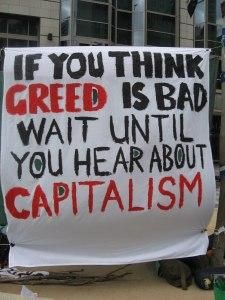General Discussion
Related: Editorials & Other Articles, Issue Forums, Alliance Forums, Region ForumsSense: Business vs. Social vs. Common
What makes a good politician? Ask a thousand people and get a thousand different answers. Perhaps a blend of leadership, empathy, and proper social goals are a big part of a good politician. So much of those qualities come from background, the catch-all name for what made us who we are. What you were taught, how you fit into society, how you set goals, how you reached for those goals, and how you saw the rest of society. One “background” so often proclaimed at maximum volume in political ads is “businessman” (That may sound sexist. But, I rarely see a female candidate cite a high level corporate position in a political commercial. I put it down to half glass ceiling, half a sense of embarrassment.). There are questions if a business background can forge a competent politician. Politics and business are completely different. They share some characteristics, the same way humans and donkeys are mammals with four limbs and a head. But I am becoming more aware of how much jackass is in my human government.
I want to clarify one thing; I believe a bad background can produce a good person. I’ve met a lot of people who made poor choices and learned from them. A criminal record, an accident, past or current addictions all can make a person stronger in many ways. Those kinds of pasts usually disqualify good people from seeking political office. The right or wrong of that is a separate argument.
One way to look at business is as a society; one for the express purpose of generating revenue. Someone raised in that micro-society, especially if they were successful in that society, would be unable to mentally keep separate, normal main stream society from their comfy little world. Much the same way police officers tend to view the world in the worst terms by having to deal with the worst of society and circumstance.
Is the ability of someone trained in “lean manufacturing”, TQM (total quality manufacturing), or six sigma going to work well in an organization which produces no product? These much hyped business philosophies are dedicated to produce something in the most streamlined manner. Without a product of some sort, they lose all meaning. Government has no product; it is a way for a society in a location to sustain itself over as long a time as possible. Government is social interaction, continuous work on infrastructure, defense, and the common welfare of all within that society. Those individuals trained to cull the staff and pile tasks on the survivors to “streamline the process” might be the worst choice to manage an all encompassing diverse, freethinking, boisterous, uncooperative, needy, generous, obedient, defiant, laughing, dancing, society that sometimes doesn’t speak the same language, chockfull of people you can’t fire.
Bear in mind, in the last half century, business turned the personnel dept (the group dedicated to serving the needs of the employees) into the human resources dept (the group dedicated to the devaluing of the individual employee). Those who have trained to view people as a consumable resource for an organization seem to be particularly ill-suited for running a humanitarian relief department.
The privatization of traditional governmental duties, the substituting of governmental bureaucracy for business bureaucracy, is often touted as an economic improvement. Does that make logical sense? The salaries and benefits of governmental office workers are fixed, the salaries and benefits of private companies are at the discretion of the receivers of those salaries and benefits. The number of managers in private companies is generally higher than the number of managers in a governmental department. Private companies do have the advantage of being able to rapidly dismiss employees deemed unsuitable. But does that really encourage efficiency, or just enable cronyism?
Government is the action arm of a society, in the best case; it is wielded by the agreement of the society. Its goal is long term survival. It must be able to act on the here and now, yet keep the next hundred years in mind. That is why the founders of the nation are so well remembered; they wrote documents which can evolve through the years as society changes. Business is a micro-society with the shared goal of immediate profit. There is no change of focus, just eyes on the cash.
Trusting the ones who value money more than humanity can only be done by joining them. Very few people can do that, about 1 percent.
leftstreet
(36,103 posts)